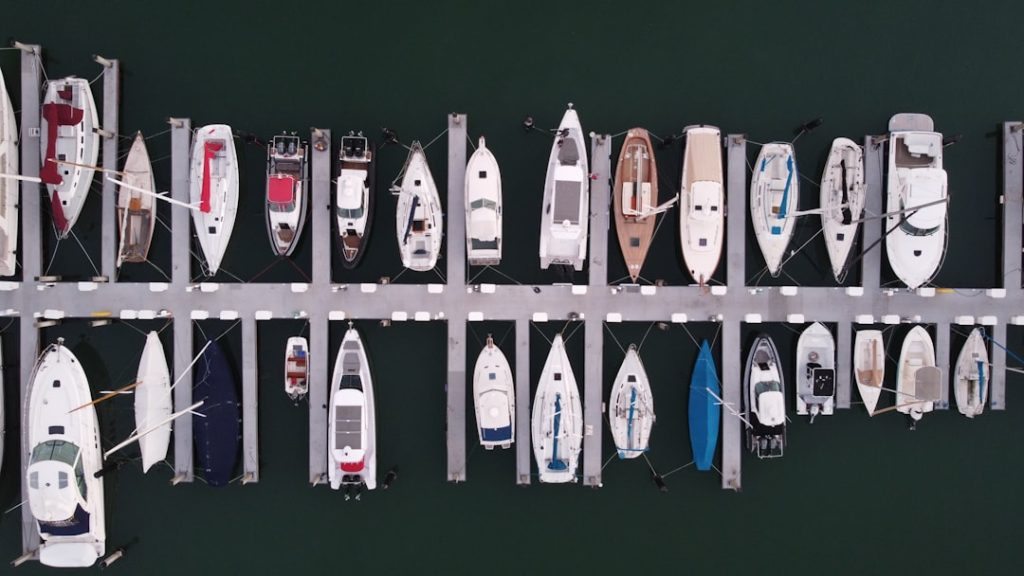Before embarking on the journey of purchasing a boat, it is crucial to have a clear understanding of your specific needs and preferences. The type of boating experience you desire will significantly influence the kind of vessel you should consider. For instance, if you envision leisurely weekends spent cruising with family and friends, a spacious pontoon or a comfortable cabin cruiser may be ideal.
Conversely, if your interests lean towards fishing or water sports, a center console or a ski boat might be more suitable. Identifying the primary purpose of the boat will help narrow down your options and ensure that you invest in a vessel that aligns with your lifestyle. Additionally, it is essential to consider the size and capacity of the boat.
How many people do you plan to accommodate? Will you be taking long trips or short excursions? These questions will guide you in selecting a boat that not only meets your recreational needs but also provides adequate space for comfort and safety.
Furthermore, think about the type of water conditions you will be navigating. Will you be primarily on calm lakes, or do you plan to venture into open seas? Understanding these factors will help you choose a boat that is not only enjoyable but also safe and practical for your intended use.
Key Takeaways
- Clearly define your boating needs before starting your search.
- Research multiple boat shops to compare options and reputations.
- Inspect vessel quality thoroughly to ensure durability and safety.
- Factor in budget constraints and explore financing possibilities.
- Prioritize shops offering strong customer service, warranties, and maintenance support.
Researching Boat Shops:
Once you have a clear understanding of your needs, the next step is to research boat shops in your area or online. The reputation of the dealership can significantly impact your purchasing experience, so it is vital to gather information about various shops. Start by seeking recommendations from fellow boaters or online forums dedicated to boating enthusiasts.
These sources can provide insights into which dealerships are known for their quality service and reliable vessels. Additionally, reading customer reviews on platforms like Google or Yelp can offer a glimpse into the experiences of others who have purchased boats from specific shops. When researching boat shops, consider their inventory and the brands they carry.
Some dealerships specialize in new boats, while others may focus on used vessels or specific types of boats, such as sailboats or fishing boats. It is beneficial to visit multiple dealerships to compare their offerings and see the boats in person. This hands-on approach allows you to assess the condition of used boats and get a feel for new models.
Furthermore, inquire about any ongoing promotions or financing options that may be available, as these can influence your decision-making process.
Assessing the Quality of Vessels:

Quality is paramount when it comes to purchasing a boat, as it directly affects performance, safety, and longevity. When assessing the quality of vessels, pay close attention to the materials used in construction. High-quality boats are typically made from durable materials such as fiberglass or aluminum, which can withstand harsh marine environments.
Inspect the hull for any signs of damage or wear, as this can indicate how well the boat has been maintained. Additionally, check for any irregularities in the finish, as these can be signs of poor craftsmanship. Another critical aspect to consider is the engine and mechanical systems of the boat.
A reliable engine is essential for ensuring smooth operation and minimizing maintenance costs down the line. If you are considering a used boat, request maintenance records to understand how well the previous owner cared for the vessel. A well-documented service history can provide peace of mind regarding the boat’s condition.
Furthermore, if possible, take the boat for a test drive to evaluate its performance on the water. Pay attention to how it handles, accelerates, and responds to steering inputs; these factors will give you valuable insights into its overall quality.
Considering Budget and Financing Options:
| Budget Category | Estimated Cost | Financing Options | Interest Rate (%) | Repayment Term (Months) | Monthly Payment |
|---|---|---|---|---|---|
| Home Purchase | 350,000 | Mortgage Loan | 3.5 | 360 | 1,571 |
| Car Purchase | 25,000 | Auto Loan | 4.2 | 60 | 460 |
| Education | 40,000 | Student Loan | 5.0 | 120 | 424 |
| Home Renovation | 15,000 | Personal Loan | 6.5 | 36 | 460 |
| Vacation | 5,000 | Credit Card | 18.0 | 12 | 460 |
Establishing a budget is a critical step in the boat-buying process, as it helps you determine what you can realistically afford without compromising your financial stability. Consider not only the purchase price of the boat but also additional costs such as insurance, registration, maintenance, and storage fees. It is advisable to create a comprehensive budget that encompasses all potential expenses associated with boat ownership.
This approach will help you avoid any financial surprises down the road. Once you have a budget in mind, explore financing options available through dealerships or financial institutions. Many boat shops offer financing plans that can make purchasing a vessel more accessible.
Compare interest rates and terms from different lenders to find the best deal that suits your financial situation. Additionally, consider whether you want to make a down payment and how that will affect your monthly payments. Understanding your financing options will empower you to make an informed decision that aligns with your budgetary constraints.
Evaluating Customer Service and After-Sales Support:
Customer service plays a pivotal role in the overall satisfaction of your boat-buying experience. A dealership that prioritizes customer care will not only assist you during the purchasing process but also provide support long after the sale is complete. When visiting boat shops, take note of how staff members interact with customers.
Are they knowledgeable about their products? Do they take the time to answer questions thoroughly? A positive customer service experience can make all the difference when navigating any issues that may arise after your purchase.
After-sales support is equally important, as it encompasses services such as maintenance, repairs, and warranty claims. Inquire about the dealership’s policies regarding after-sales support and whether they offer any maintenance packages or service plans. A reputable dealership should have a dedicated service department that can assist with routine maintenance and unexpected repairs.
Additionally, ask about their response times for service requests; prompt support can save you time and frustration in the long run.
Exploring Additional Services and Amenities:

In addition to customer service and after-sales support, consider any additional services or amenities that a boat shop may offer. Some dealerships provide comprehensive packages that include training sessions for new boat owners, which can be invaluable for those who are new to boating. These training sessions often cover essential topics such as navigation, safety protocols, and basic maintenance tasks.
Having access to such resources can enhance your confidence on the water and ensure that you are well-prepared for your boating adventures. Moreover, some boat shops may offer amenities such as on-site storage facilities or access to local marinas. If you lack space at home for storing your vessel during off-seasons or when not in use, having access to secure storage options can be a significant advantage.
Additionally, inquire about any community events or gatherings organized by the dealership; these can provide opportunities for networking with other boaters and sharing experiences.
Examining Warranty and Maintenance Packages:
A thorough examination of warranty options and maintenance packages is essential when purchasing a boat. Warranties provide peace of mind by covering potential defects or issues that may arise after your purchase. Different manufacturers offer varying warranty terms, so it is crucial to understand what is included in each warranty package.
Look for warranties that cover both structural components and mechanical systems; this comprehensive coverage can save you significant costs in repairs should any problems occur. Maintenance packages are another aspect worth considering, as they often include routine services such as oil changes, inspections, and cleaning. Some dealerships offer prepaid maintenance plans that allow you to budget for these services upfront while ensuring that your vessel remains in optimal condition throughout its lifespan.
Understanding what is included in these packages will help you make an informed decision about which dealership offers the best value for your investment.
Making the Final Decision:
After conducting thorough research and evaluating all aspects of your potential purchase, it is time to make your final decision. Reflect on all the information gathered during your journey—from understanding your needs to assessing customer service and warranty options. It may be helpful to create a pros and cons list for each dealership or vessel you are considering; this visual representation can clarify which option aligns best with your priorities.
Once you have made your choice, approach the negotiation process with confidence. Be prepared to discuss pricing and any additional services or amenities that may be included in your purchase agreement. Remember that this is an investment in your leisure time and lifestyle; therefore, ensure that every aspect meets your expectations before finalizing the deal.
With careful consideration and thorough research behind you, you can embark on your boating journey with excitement and assurance in your decision-making process.


